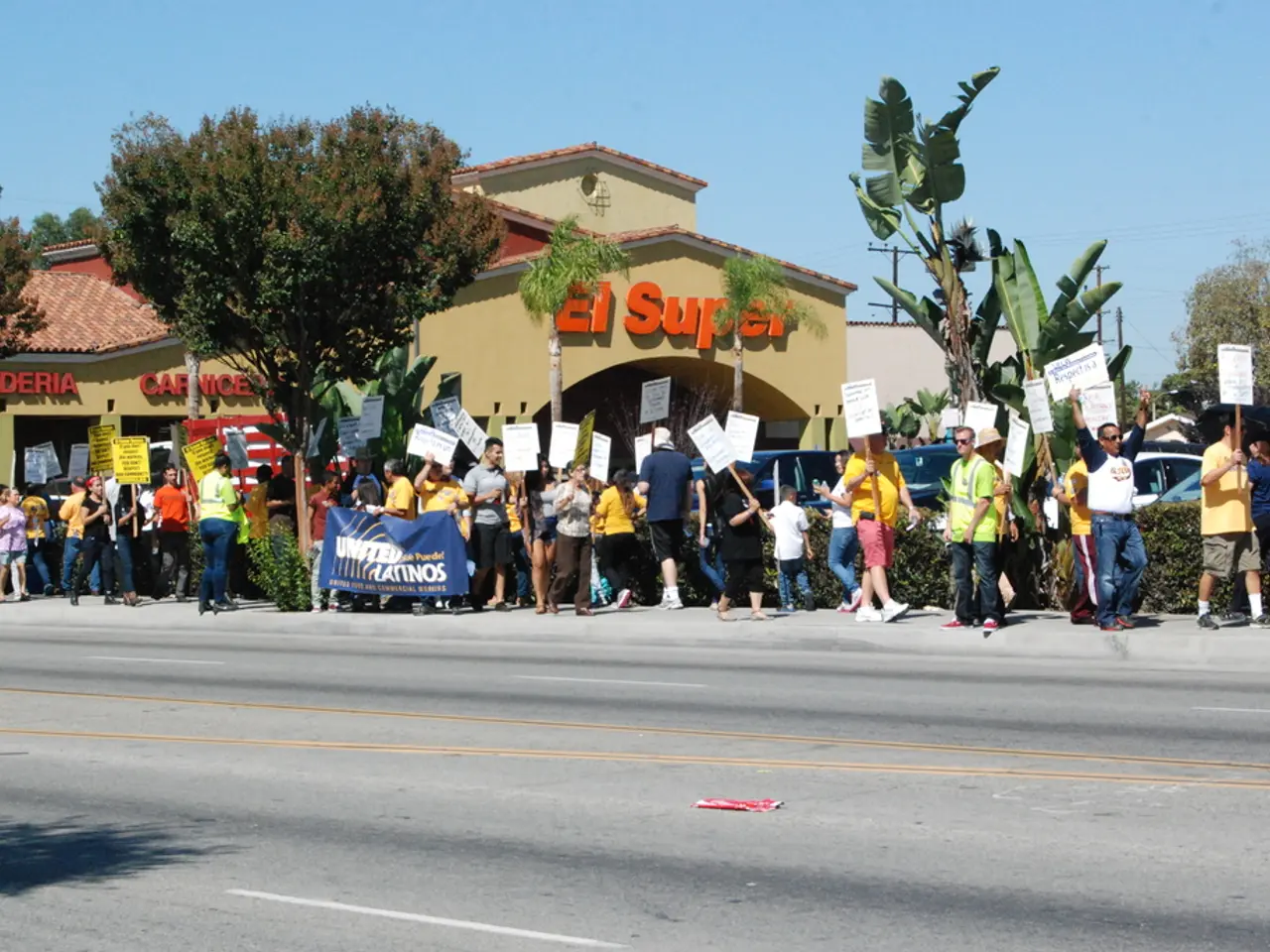Lawmakers Ought to Feel Embarrassment for Their Actions
The Senate has passed the One Big Beautiful Bill, a sweeping tax and spending package that prioritises Republican priorities, following a narrow 51-50 vote. Vice President J.D. Vance cast the tie-breaking vote, and the bill now heads back to the House for consideration.
Key Components of the Bill ----------------------------
The bill extends most of the tax cuts from former President Trump's 2017 tax law, including a deduction capped at $12,500, phased out above $150,000 income. It also boosts funding for border security, defence, and domestic energy production, particularly fossil fuels, while cutting healthcare, federal food aid, student loan programmes, and clean energy tax credits.
Impact on Deficits and Debt ----------------------------
The bill is projected to increase budget deficits by roughly $4 trillion over 10 years (2025-2034), mainly from tax cuts and spending increases. When factoring in interest costs on the higher national debt, deficits rise by an additional $700 billion, totalling around $4 trillion extra deficit over a decade. If certain temporary sunset provisions were made permanent, deficits could reach $5.5 trillion over 10 years. The national debt as a share of GDP would increase, worsening from a projected 117% to higher levels by 2034 under the bill, and the debt-to-GDP ratio would rise by about 9.3 percentage points, increasing the long-term debt burden significantly.
Economic Growth ---------------
Analysts estimate the bill would improve long-run GDP by about 1.2% due to better investment incentives and preventing tax increases on about 62% of taxpayers compared to letting the 2017 tax cuts expire. However, the increased borrowing and debt would reduce long-run American incomes (GNP) slightly, by about 0.6%. Thus, the bill presents a tradeoff: higher economic growth paired with higher deficits and a rising debt burden.
Health Care and Social Impact ------------------------------
The bill contains nearly $1 trillion in Medicaid cuts – the largest proposed by Congress – expected to reduce access to care and harm hospitals, sparking strong opposition from health organisations. Critics argue the bill disproportionately benefits the wealthy while making the poorest Americans worse off.
In conclusion, the One Big Beautiful Bill prioritises tax cuts and spending aligned with Republican priorities, raising the debt ceiling substantially and increasing deficits dramatically. While it aims to boost economic growth through investment incentives and tax relief for most taxpayers, it also enacts deep cuts to social programmes and risks worsening fiscal health over the long term.
- The One Big Beautiful Bill, now returned to the House, highlights California's and Los Angeles' political landscape, as it aligns with Republican priorities, focusing on tax cuts and increased spending.
- The bill's immigration-related aspects include substantial cuts to federal food aid, potentially impacting a significant number of immigrants in the general-news landscape.
- Editorial discussions may focus on the culture clash in California and Los Angeles as the bill prioritizes fossil fuel production, a move critics view as contrary to clean energy initiatives.
- On the educational front, student loan programs face cuts under the bill, which could foster diverse opinions and debates within the community.
- The bill's controversial provisions, including Medicaid cuts and derision for clean energy tax credits, have sparked heated discussions in the political sphere, particularly in areas with a strong focus on policy-and-legislation matters.
- Meanwhile, sports enthusiasts in the city of Los Angeles might find themselves caught up in the ongoing discourse surrounding the bill and its potential impact on the NFL's Los Angeles Rams, as increased deficits and national debt may directly influence government funding and operations.





